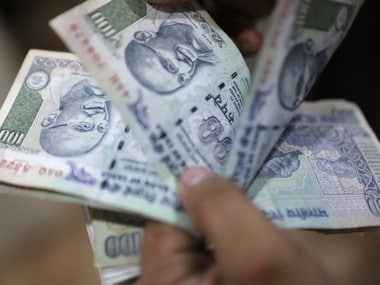Electoral bonds were thought of by the Narendra Modi government as conferring anonymity to donors as against the present norm when corporate donors are exposed to scrutiny regarding their political leanings thanks to the requirement in the Companies Act to disclose the names of the political parties benefiting from such corporate largese and munificence through cheques. In other words, the USP of electoral bonds is its anonymity---it is a bearer bond, as it were, but can be cashed in only by registered political parties that received at least 1 percent of the votes in the recent state or general elections.
According to an ADR (Association of Democratic Reforms) analysis, out of the Rs 78.33 billion national and regional parties received as funding between 2004-05 and 2014-15, as much as 69 percent were from unknown sources. The analysis further showed that 83 percent income of the Indian National Congress and 65 percent income of the Bharatiya Janata Party (BJP) came from unknown sources during this period.
The cash route is still alive and kicking. Earlier, the norm was any donation more than Rs 20,000 had to be routed through banking channels. Now that figure is Rs 2,000. But this would hardly deter anonymous cash donations. Earlier, the political party wanting to explain away a hefty Rs 20 crore cash donation as from small donors had to contrive to account for it as having been received from ten thousand persons; now it has to do more hard work---issue receipts to anonymous cash donors aggregating to one lakh, each carefully donating just Rs 2,000 on an average!
The Modi government believes that electoral bonds would strike a balance between cash and cheque. Cash is from anonymous donors, so are electoral bonds but the donor of bonds dare not use his black money for this munificence because they have to be bought from designated branches of the State Bank of India (SBI) through one’s bank account complying with KYC norms. To be sure, this would be a deterrent against blithely depositing ill-gotten wealth into one’s bank account and then donating it to a political party. But equally, that would also repulse donors with an evil intent---they would rather settle for cash donations, leaving political parties to explain them away as being from small donors each for Rs 2,000 or less.
The government has erred with both -- the availability of cash and bonds dispensation. The existence of the former would tantalize crooks into abandoning the bonds dispensation. Be that as it may, let us now focus on the nitty gritty.
Parties can encash the bonds within 15 days of issuance in their bank accounts disclosed to the Election Commission of India (EC). Electoral bonds will be available for purchase for a period of 10 days in January, April, July, and October, and for 30 additional days during the year in which the Lok Sabha elections take place. One wonders why the bond window is kept open for 30 additional days in a general election year alone, i.e. normally once in 5 years. Regional parties who normally fancy their chances more in Assembly elections are bound to complain vociferously against this discrimination.
The SBI and EC would know how much money is poured in as donations through electoral bonds and in fact they can cross-verify the figure for their accuracy---SBI supplying the donor figure and the EC the donee figure. Both must tally. Can the government of the day using its coercive powers put pressure on the SBI to disclose the name of bond purchasers? If it can, this would be yet another inhibiting factor against this mode of political donations especially for corporates.
That the bonds would be available even in as low a denomination as Rs 1,000 is meant to endear it to the common man but it begs a question---Why would he bother to hotfoot to the nearest designated branch of the SBI and again hotfoot to the political party he is fond of when he can straightaway walk into the political party’s office and take Rs 1,000 from his purse or donate the same amount from the comfort of his home by using the online banking facility?
Corporate donations through electoral bonds might become popular thanks to the anonymity conferred provided the government of the day is barred through an express provision from forcing the SBI to disclose the names of the buyers of bonds. But company promoters are no fools. They don’t donate to political parties with altruistic motives. Rather they do so to curry favor with the ruling dispensation or sometimes with the Opposition as well in the manner of buttering both sides of the bread just in case. The only difference between cash and bond donations is that parties would be spared the tedium of counting and accounting for wads of currency notes.


